Sustainable business story #1. How to run an organic coffee farm
What it means to dare to do things differently in your local market and go organic. And a sneak peek on how coffee is actually produced, in case you wonder.
Many companies claim they do their business sustainably by producing convincing ESG reports. Yet those reports rarely paint a real picture of what's truly required to run a sustainable business: terms like “net zero”, “decarbonisation” or statistics about waste reduced last year sound abstract. Similarly, we also have a quite abstract understanding of how the food we eat and the things we use are actually made, and what it takes to produce them in a sustainable way.
There's a world of small businesses putting sustainability into practice every day, deeply motivated to create products or services that benefit people while respecting nature. They don’t have shiny reports or metrics, but their hands-on approach and genuine commitment create a real impact. I enjoy discovering these enterprises and whenever possible, speaking with founders about their motivations and challenges.
Through this newsletter, I'll occasionally share these stories with you. Maybe some of them will inspire some changes or broaden our horizon in the way we approach business and our lifestyle. This edition is devoted to a small organic farm in Da Lat, Vietnam, that I visited during my recent holiday.
Midori Coffee farm from DaLat, Vietnam
Midori means "green" in Japanese, the colour of nature, and it perfectly represents the philosophy of the farm. The farm grows and produces coffee following organic principles (no chemical fertilisers, pesticides or herbicides) and permaculture practices (where different plants are grown together to mutually benefit from one another). Their goal is to protect the environment while creating healthy products for people.
The farm was one of the first in the region who dared to do things differently and went organic. Eight years later, they remain pioneers, as the majority of coffee farms still follow “traditional” methods (using chemicals and practicing monoculture). This makes sense from a profit perspective - conventional farming offers more guarantees that the farm will have reliable harvests and income. Most farms here are small family businesses whose livelihood depends directly on what they produce. With so much at stake, farmers hesitate to adopt new, less predictable methods, even when they're better for the environment.
Midori farm is small, charming and peaceful, with a few simple rooms for those who want to spend some time in this tranquil environment. A few dogs and cats also living there will occasionally entertain you - like one of the cats who was so persistent I couldn't help but share my food with it. I was the only visitor who booked that day and ended up getting a private tour. The co-founder, Huy, showed me around the coffee gardens, explaining the differences between organic and conventional farms, and how they process coffee using different methods: natural, honey, and washed.
So let's dive in and first understand what organic and permaculture mean.
What is organic farming?
In simple terms, organic farming means growing crops without synthetic chemicals. But as Huy showed me, it's much more than just avoiding pesticides and fertilisers - it's an entirely different approach to agriculture.
Traditional coffee farming relies heavily on chemical inputs to maximise yields and control pests. Farmers spray their crops with pesticides to keep insects away and use synthetic fertilisers to boost growth. While this produces consistent results in the short term, it creates a dependency cycle - the soil becomes depleted of natural nutrients, requiring more chemicals each season, and the coffee threes become weaker to defend themselves. Organic farming, by contrast, works with natural processes rather than against them. At Midori, this means creating healthy soil through composting and natural fertilisers, maintaining biodiversity, and using natural methods for pest management.
When you decide to go chemical-free, you commit to more hands-on work on harvesting and processing coffee. This means picking bugs by hand; harvesting only fully ripened coffee cherries, leaving green ones to mature and returning multiple times as others ripen, instead of strip-harvesting everything at once; carefully sun-drying the coffee beans on racks and quickly moving them under shelter when rain starts.
What is the permaculture?
Midori looks different from neighbouring farms. While conventional coffee farms grow coffee plants in neat, exposed rows, Midori's gardens is more like a forest - coffee plants growing alongside fruit trees, herbs and other vegetation. This is permaculture farming - a holistic approach that mimics natural ecosystems to create resilient agricultural systems that use less water and other resources while promoting biodiversity and minimising waste. It's designed for long-term sustainability rather than maximum short-term yield.
At Midori, taller trees shade smaller coffee trees, protecting them from sun and ensuring they don't need to be watered as often as on traditional farms. The soil is healthier from natural fertilisers and companion plants, providing more nutrients for the coffee trees. You can see the difference - the leaves on Midori's coffee trees look visibly healthier than on neighbouring farms where chemicals are used and there's no shade. "The leaves there are sad," says Huy, and it's true - they look like it. Even the soil colour is different - richer and darker at Midori.
Yet climate change affects it too. Last year, water shortages in the region killed many coffee trees, while unusual rain and drought patterns caused coffee flowers to bloom too early or fall before harvest. Despite these challenges, Midori's diverse permaculture system helps them withstand climate disruptions better than conventional monoculture farms.
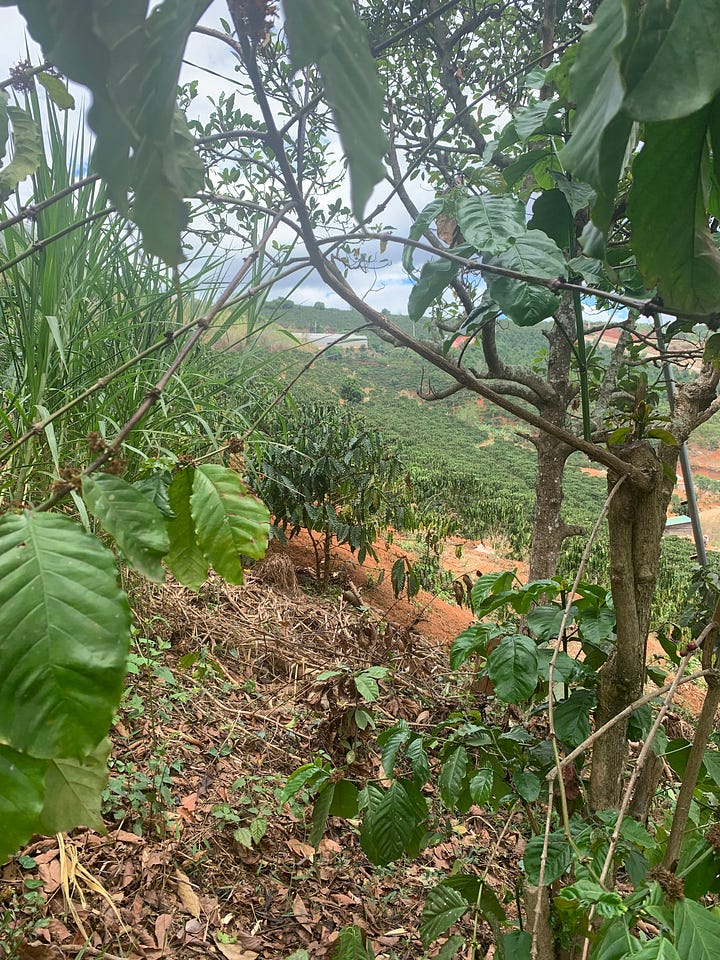
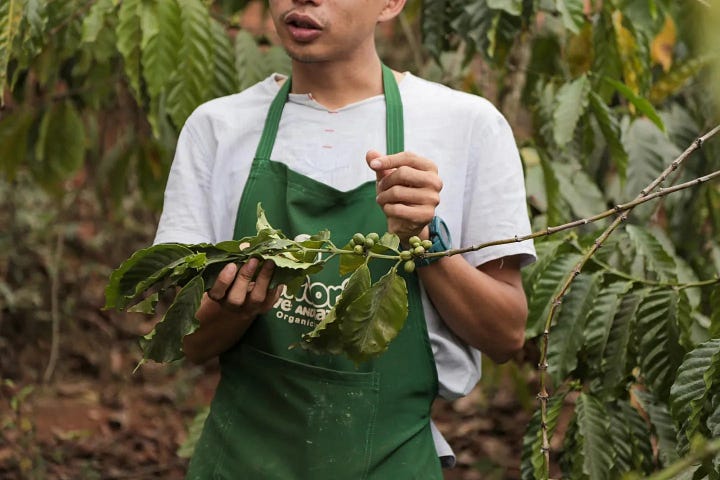
Challenges and rewards of running a sustainable coffee farm
Huy’s approach is effectively pioneering sustainable coffee farming in Vietnam, showing through example that it's possible to produce high-quality coffee while respecting natural systems, and trying to convert some local farms to follow Midori's way. Despite the clear environmental benefits, transitioning to and maintaining organic, permaculture-based farming isn't an easy choice. The benefits typically take several years to fully materialise, which prevents many farmers from adopting these methods, especially when their immediate livelihood depends on each harvest's success.
There is a lot of potential in making coffee farms more sustainable. For example, coffee cherry fruits can be used for making cascara tea, a byproduct that would otherwise be waste. But farmers usually don't have time to handpick these cherry fruits when they need to harvest the coffee. Huy treated me with cascara tea and it is really delicious. Pity this precious resource goes wasted.
Official organic certification, while valuable for marketing, presents another challenge. For small businesses like Midori, the certification process is expensive, and many farms practice organic methods without formal certification simply because they can't afford it. This creates an additional challenge when trying to justify higher coffee prices that reflect the extra care and effort invested in production.
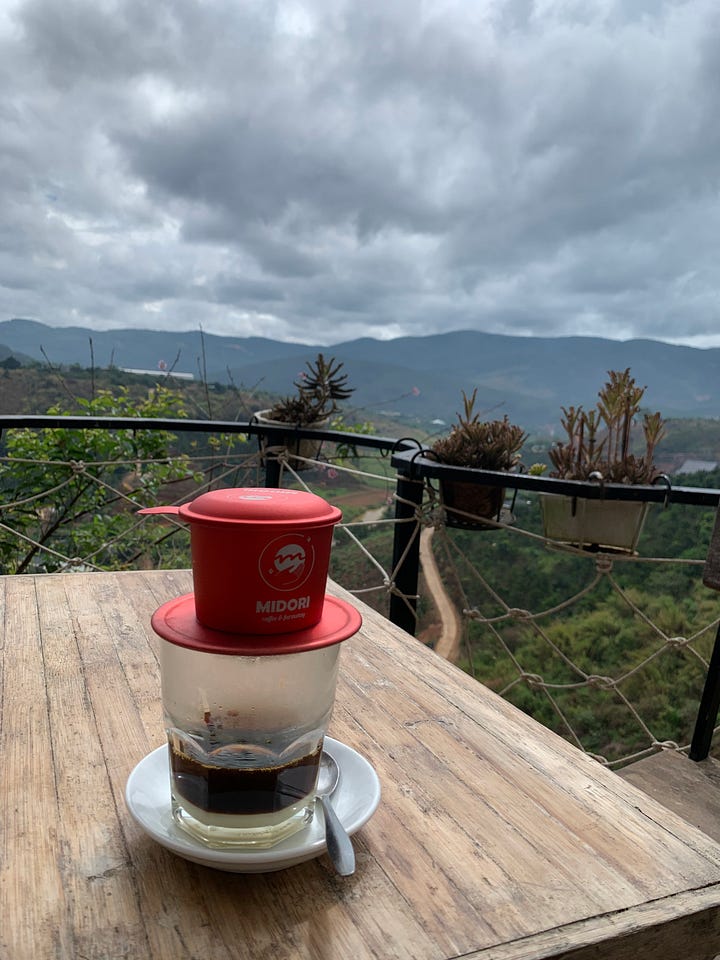
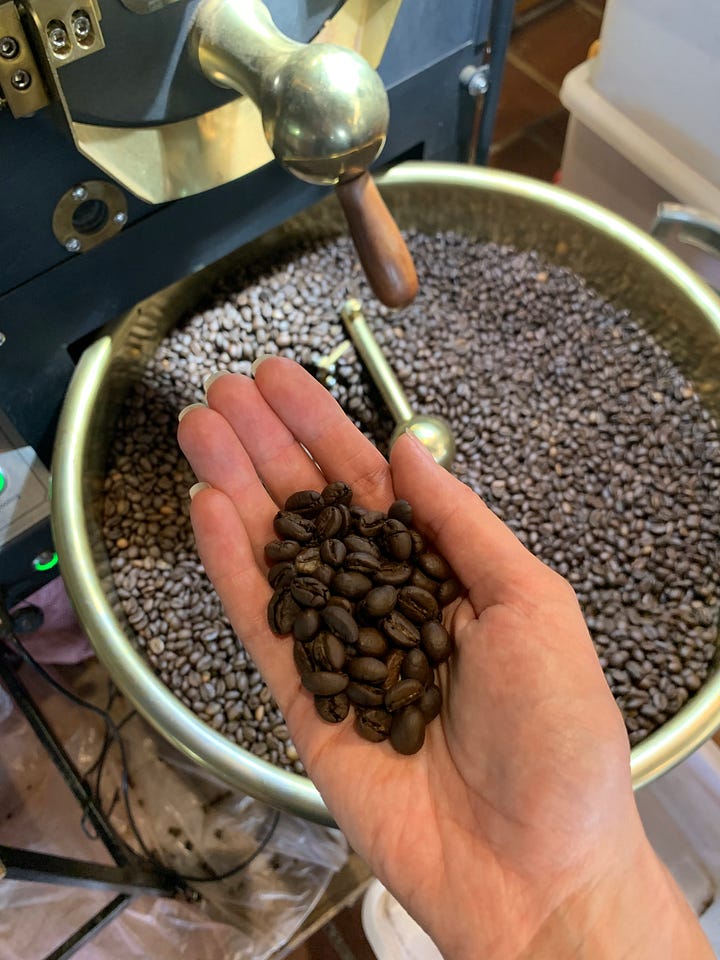
So why would farmers like Huy choose this more demanding path? The motivations go beyond financial calculations to create a product that's truly good for people and the planet, and work in harmony with natural systems rather than fighting against them. As Midori Farm explains it:
"To ensure the health of consumers - and that the coffee brings health and not toxins into the body"
"We are young people and we love the environment and don't want nature to be destroyed anymore"
"Organic farming helps everyone to live closer to nature and have a sustainable livelihood"
As consumer awareness grows, so does the market for sustainably produced coffee, and I hope that in time this practice will become more popular. As more people understand the difference and what is required to produce coffee sustainably, and how many effort goes into it, they will choose to pay for products that align with their values.
Conclusions
Such stories reinforce my belief that true sustainable businesses are made by brave innovators. It is made by people who dare to shake things up because it's the right thing to do. You don't have a path to follow and must make your own, you challenge established norms, you have to remain constantly curious and learn, and be brave enough to embrace more uncertainty in your profit prospects. In the case of growing food, it means you're depending on ever-changing nature rather than steady chemicals.
I love meeting business owners who are trying to make a difference. You see that it has nothing to do with reports really, but with being brave and wise enough to understand the interconnectedness of all living species on our planet. Respecting nature and trying to understand complex natural ecosystems means respecting ourselves as well, and being responsible enough to think about future generations. And also kindness - there's a genuine care for people and planet that drives these entrepreneurs forward despite the additional challenges they face.
I will bring more stories of such businesses in my newsletter. Stay tuned!
P.S Some photos are mine and some are from Midori’s website and Facebook page. If you want to learn more about Midori, visit their website https://midorifarm.vn


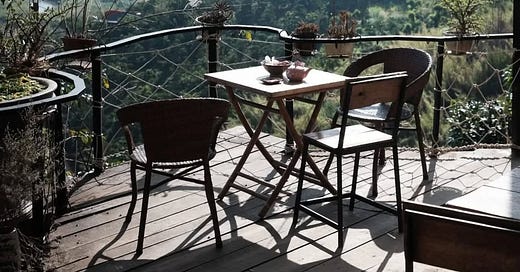



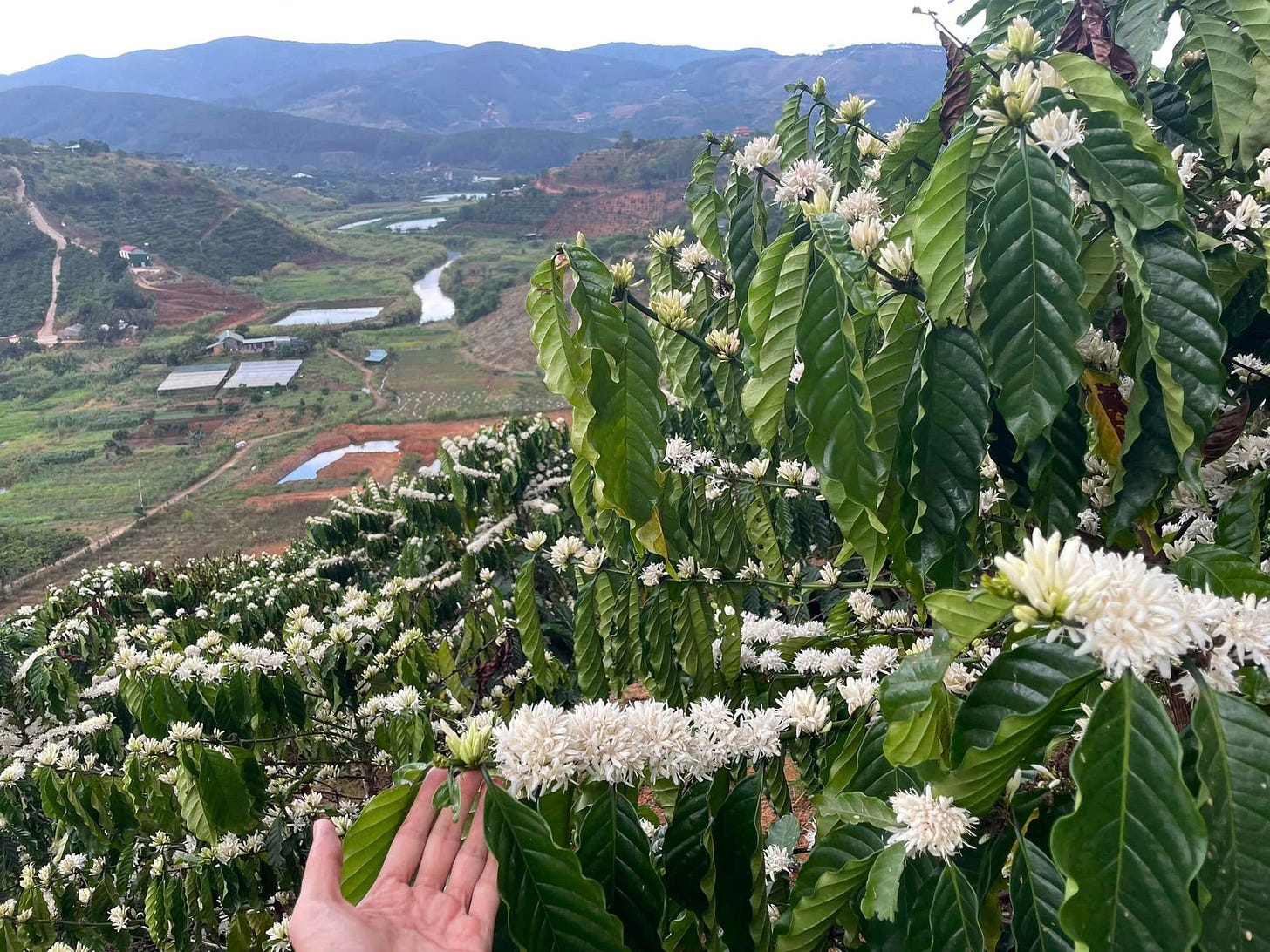


The link to the Huy’s website where you can learn more about his approach https://huyeco.vn/